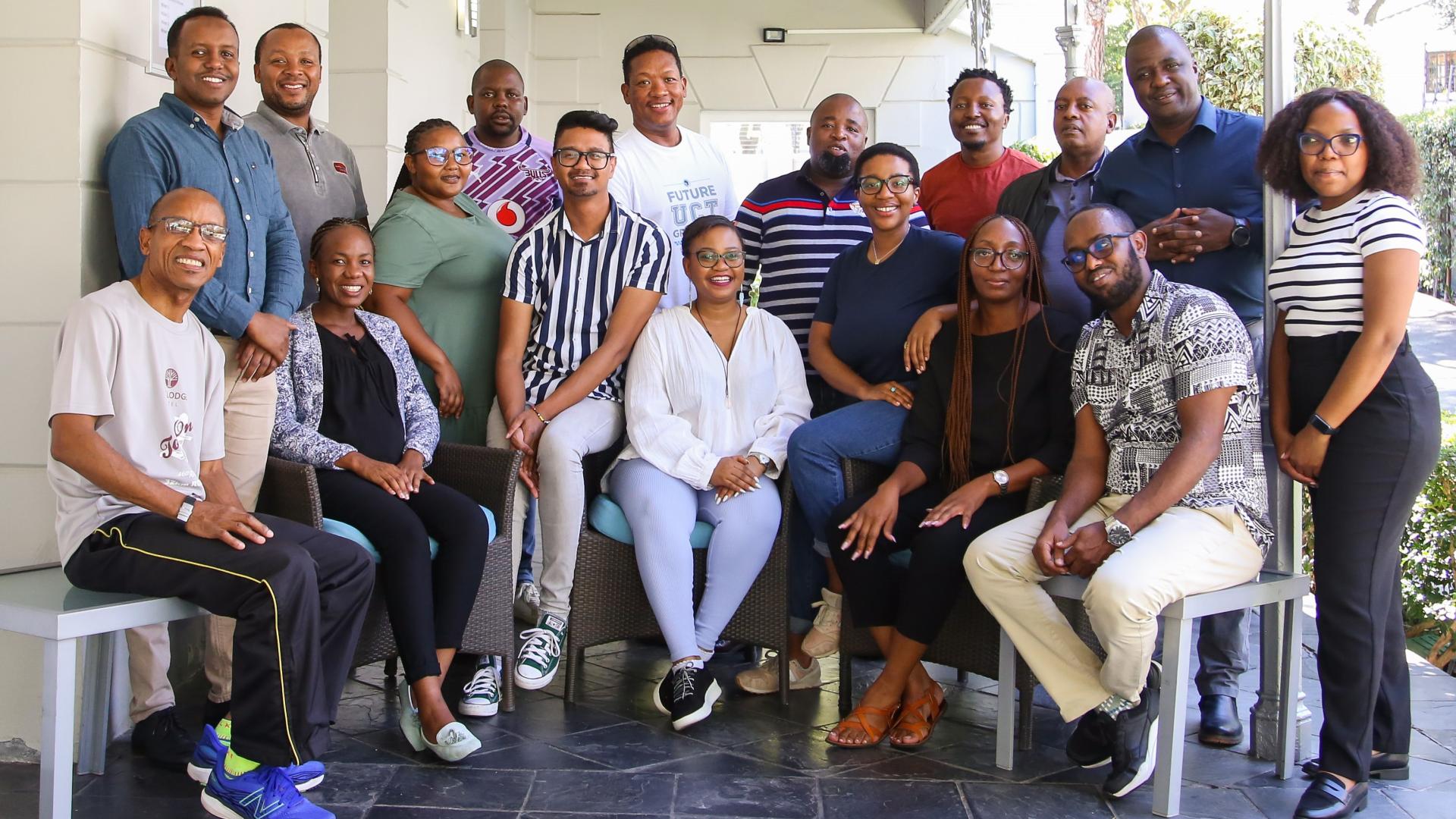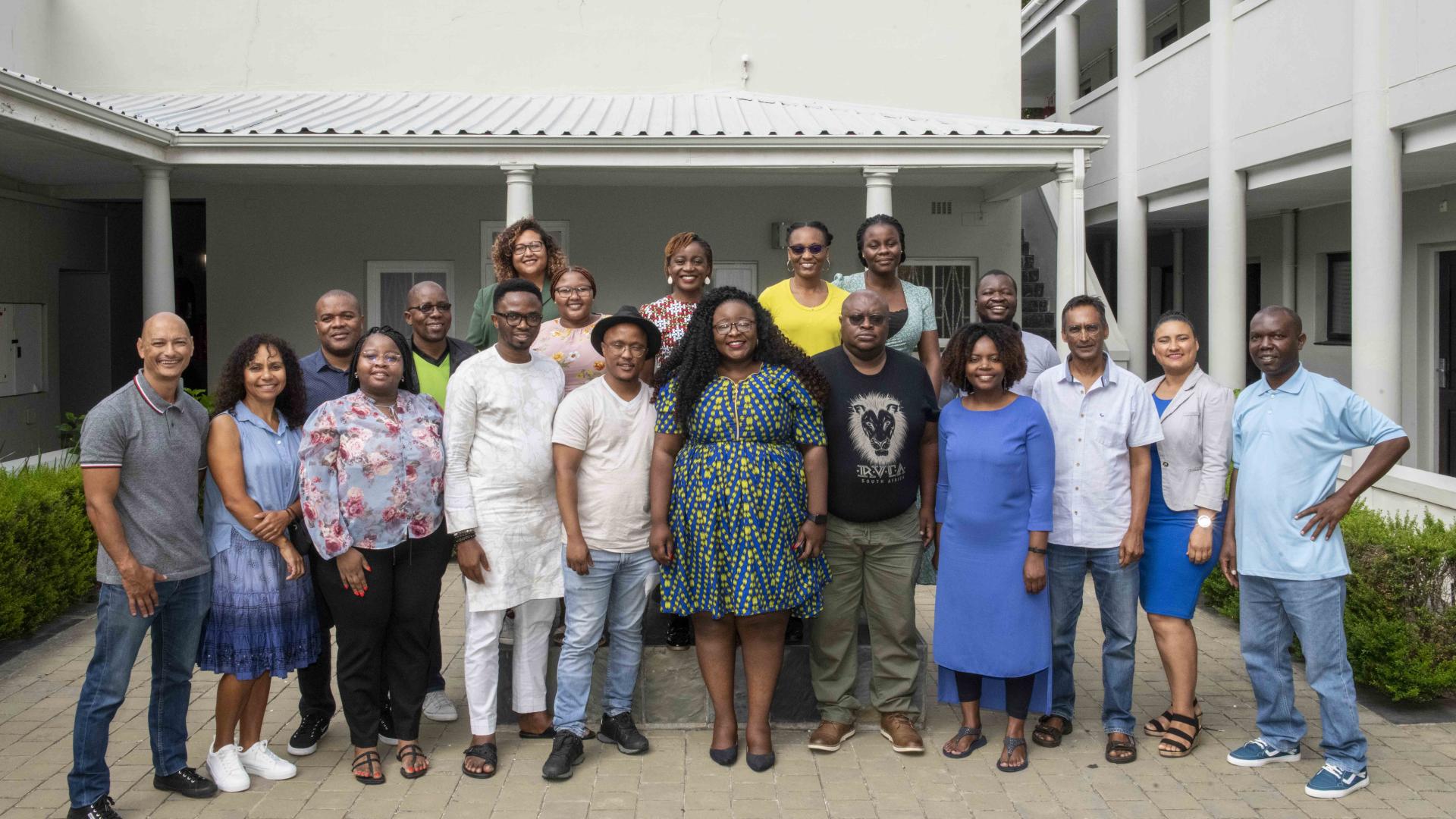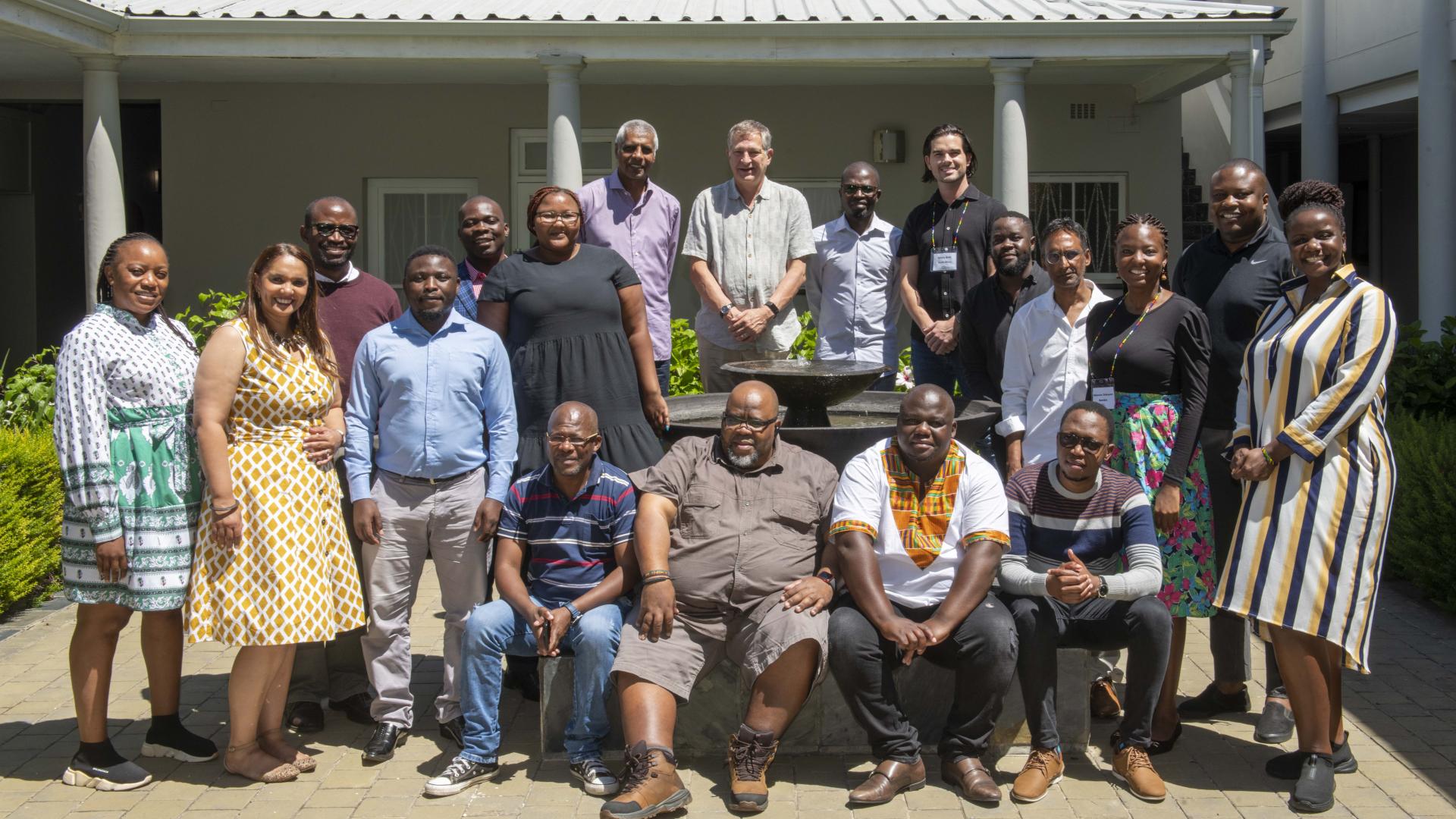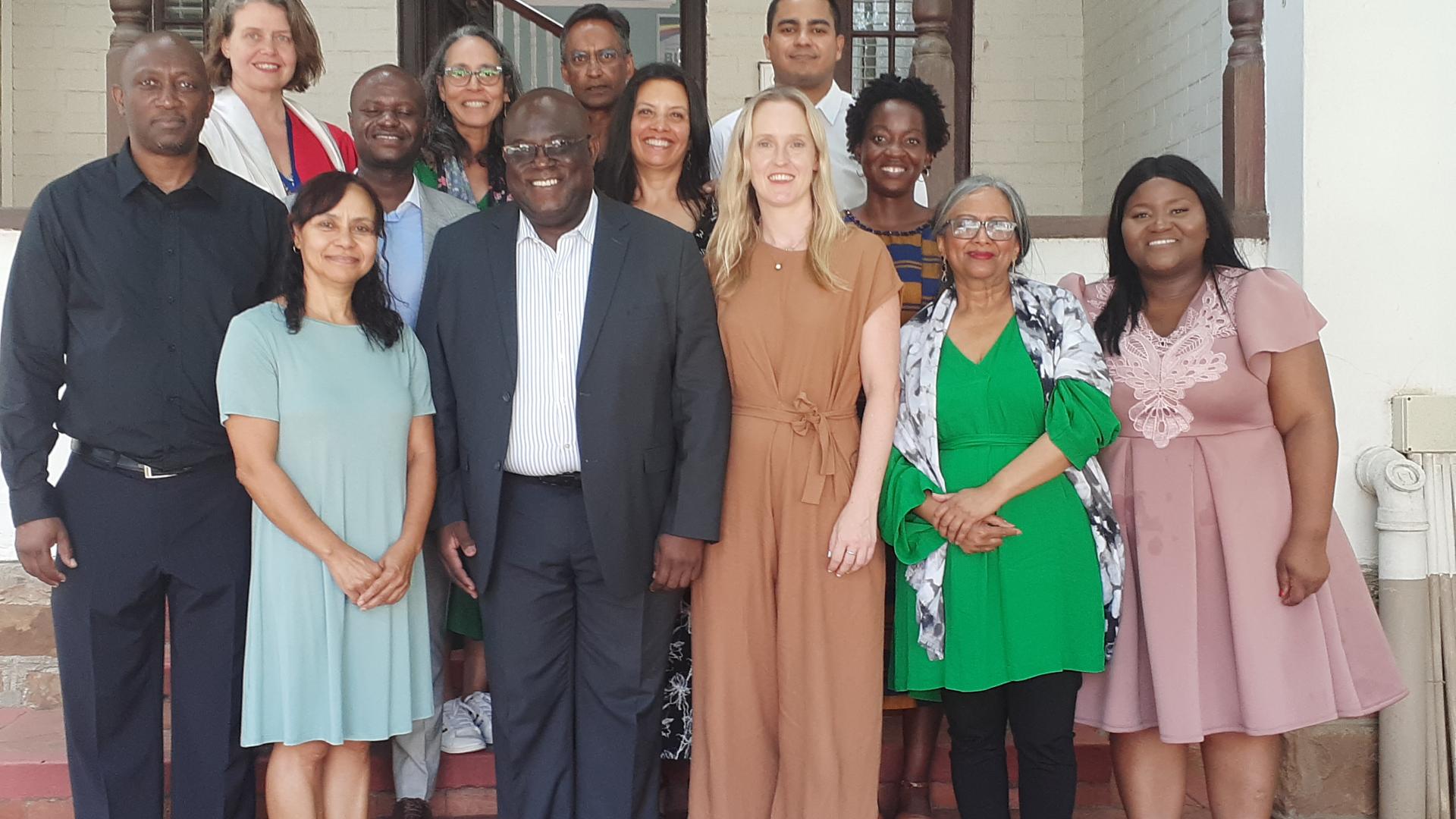The first quarter of 2023 has been another exciting time for the School
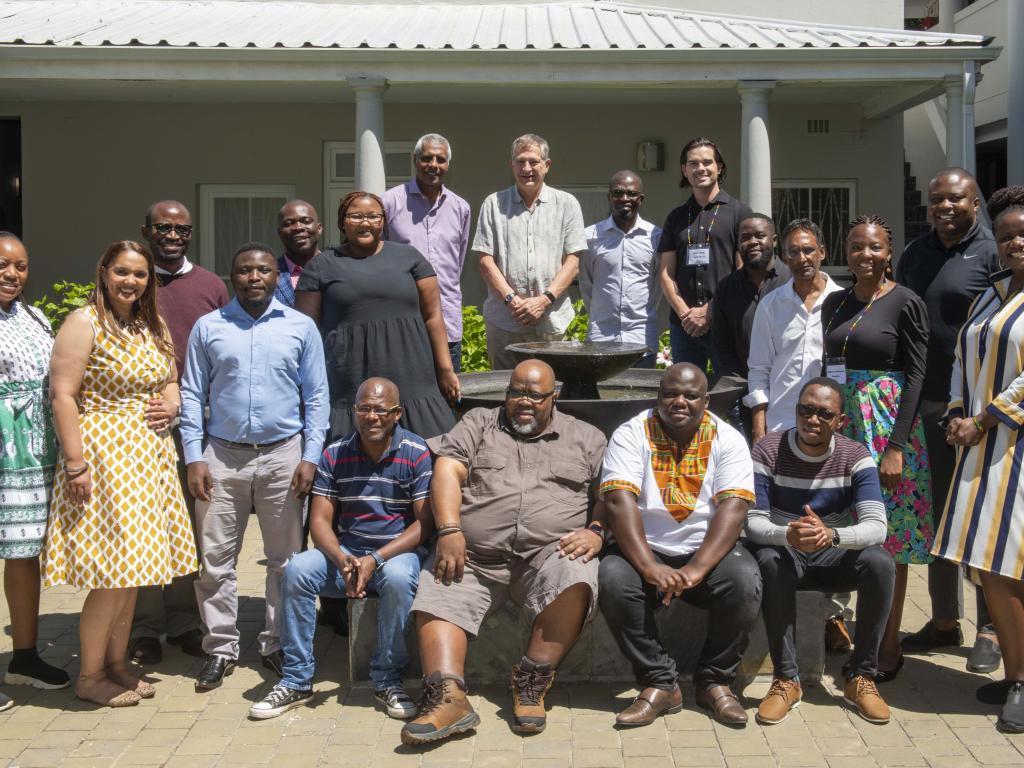
The first quarter of 2023 has been another exciting time for the Nelson Mandela School. This year we launched a Guest Lecture Series to bring together thought leaders and practitioners from around the world to share their insights with our current students, alumni, partners, UCT community and policy experts.
The School’s network of policy experts from government, civil society, the private sector, and multilateral institutions hold insights and wisdom that help to shape the narratives and approaches needed to realise the aspirations of the African Continental Free Trade Area, Agenda 2063 and the Africa We Want.
We invite you to collaborate with us in building the next generation of African leaders and contribute towards strengthening African public institutions. To learn more about the School's ongoing activities and multi-disciplinary programmes, watch this short video.
In this newsletter, we share the latest updates on the School’s Academic Programme, Executive Education, Research work around the AfCFTA regional value chains and the Building Bridges Programme.
Thank you for being part of the Nelson Mandela School’s family, circle of friends, colleagues and supporters. Together we can advance transformation in Africa.
Sincerely
Professor Faizel Ismail
The Nelson Mandela School of Public Governance: Director
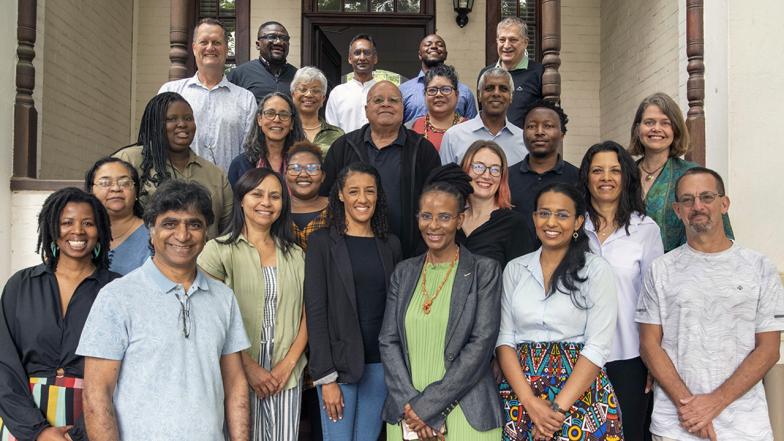
The School's Academic Programme
The School congratulates the 2022 class of Master of Development Policy and Practice graduates who managed to complete their studies during the most difficult time the world faced, the COVID -19 pandemic. It's a new academic year and we are pleased to welcome a new cohort coming from across Africa.
As of 2023, the School’s students now have the option to complete the Master of Development Policy and Practice (MDPP) in a year or opt to complete it in two years. Applicants can register for either programme based on their specific needs and requirements.
The one-year programme comprises four quarters of six weeks each spread across the 12 months, with course work and seminars in the evenings. The two-year programme comprises four intensive two-week contact sessions spread six months apart.
The Academic Programme at the School provides a dynamic learning environment with a balance of theoretical and practical learning. The core curriculum is drawn from the disciplines of economics, political science and public management and is designed to address the challenge of driving effective reforms or establishing new public programmes.
To hear what some of our students think about the School's Academic programme, click here to view a short video. Applications for 2024 are now open. For more information about the application processes and requirements, email Ms Zikhona Sikota at zikhona.sikota@uct.ac.za
The AfCFTA and Transformative Industrialisation Webinar Series
In February, the School held the fourth roundtable research discussion, as part of a series to make policy recommendations for the development of regional value chains in the healthcare and pharmaceutical sector across Africa, through leveraging opportunities presented by the implementation of the African Continental Free Trade Area agreement (AfCFTA).
The roundtable focused on two key areas that remain contentious: procurement and supply chain of vaccines in the context of some of the issues that were experienced during the Covid-19 pandemic, and more importantly, how vaccine procurement and supply chain is progressing, especially in the context of the AfCFTA.
Building African competitive fibre-to-garment Regional Value Chains stimulated by the AfCFTA: A Private Sector Vision and Action Plan
The School in partnership with the AfCFTA Trade and Industrialisation Advisory Council and the AfCFTA Secretariat hosted a brainstorming session to provide private sector actors operating in the fibre-to-garment value chains across Africa with the opportunity to drive the discussion on the development of fibre-to-garment regional value chains – including the actions and Rules of Origin (RoO) required to achieve this vision. The AfCFTA Secretariat, the AfCFTA Trade and Industrialisation Advisory Council, and the African Union Ministers for Trade received insights and proposals following this brainstorming session. Follow this link, to access policy briefs and summary reports developed by the School.
Executive Education Programme
Democratic Governance: Re-imagining the State and Civil Society
As part of the School’s thematic focus on Democratic Governance, the Executive Education Programme recently convened a short course, Re-imagining the State and Civil Society. The course examined both the theoretical and practical challenges of building democratic governance and vibrant civil societies to construct national public spheres based more on consent and legitimacy, rather than force and repression. The course also explored models of implementation, with case studies on implementation challenges and successes; highlighting theories and approaches to understanding governance, and the role of civil societies in building resilient democracies. This course which took place from 13 – 17 March in Cape Town, was attended by 22 participants from across the continent of Africa.
United Nations System Staff College (UNSSC) visits to the School
During the week of 20 – 24 March, Prof Faizel Ismail and team hosted Dr Jafar Javan and Dr Simona Costanzo Sow from the United Nations System Staff College (UNSSC) to conceptualise potential collaboration for exchange students, fellows and staff programmes. This comes after a Memorandum of Understanding (MOU) was signed between the School and UNSSC in 2022. Under the terms of the MOU, the two institutions will leverage each other’s strengths to work collaboratively in selected areas of research, pedagogy, dialogue, research forums, and the sharing of facilities and other resources.
The Building Bridges Programme connects leaders from across Africa to tackle challenges with the view to establish networks of expertise and trust
As part of the Building Bridges Programme, the School launched Mandela School Connect in 2021, to promote alumni engagement within the Nelson Mandela School’s community.
The platform allows current and former students/ fellows to do the following:
- Connect - find and reminisce with fellow graduates, see what they have been up to and stay in touch.
- Give back - introduce, employ and offer to act as a mentor to our graduating students.
- Expand - leverage the network to be introduced to strategic contacts.
Sign up to be part of the community here.
Journeys begin, sometimes they end, giving birth to new beginnings...
Time and distance often come between people, but the love and respect we hold for each other will always keep us together. For the last seven years we have had the priviledge and honour to have Ms Mabel Nederlof Sithole as part of the Nelson Mandela School family.
As Mabel eloquently shared in a letter she wrote to the School's family ..."journeys begin, sometimes they end, giving birth to new beginnings".
Our time with Mabel as an esteemed colleague has officiall ended, but we know our family ties exceed time. It's truly been a privilege to co-create and implement to name a few, the Emerging African Leaders Programme (EALP), LeAD Campus Programme, Women, Influence, Power Programme (WIPP) and most recently Democratic Governance Executive Short Course with Mabel.
Mabel, we thank you for your solidarity, grace and love which you carry with you into every space you occupy.
Tinokutendai from all of us here at the Nelson Mandela School!
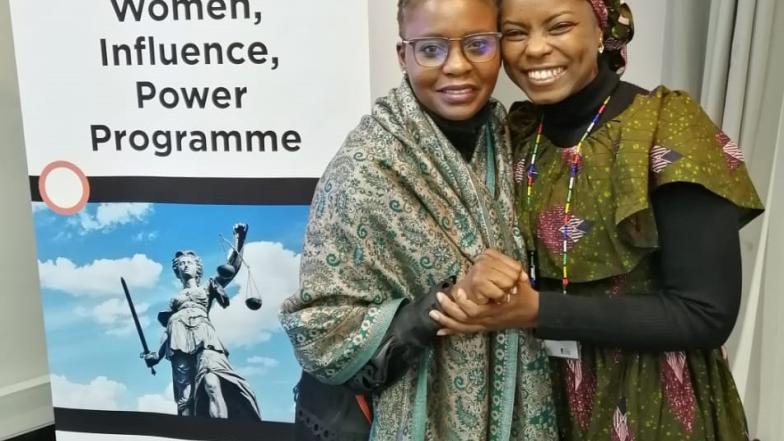
Recently published research papers
The School is research driven and aims to build inclusive, developmental entrepreneurial and effective democratic African public institutions. One of the driving forces behind the School's dynamic Academic Programme and agile Research Programme is the ability to be at the forefront of Africa’s socio-economic discourse.
Our teaching faculty, researchers and adjuncts faculty are currently working on forward-thinking and problem-solving research that advances democratic governance, highlight developmental regionalism, sustainable development, social inclusion and public policy implementation on the continent.
These are our most recent publications:
- Bagwandeen, M., Edyegu, C., and Otele, O. 2023. African Agency and Debt Renegotiations with China. South African Journal of International Affairs, 30 (1):1-27.
- Dieng, R.S. 2023. From Yewwu Yewwi to #FreeSenegal: Class, Gender and Generational Dynamics of Radical Feminist Activism in Senegal, Politics & Gender
- Haricharan, S.J. 2023. Leadership, management and organisational implications for public service employee well-being and performance. SA Journal of Human Resource Management.
- Rule, D.M. 2023. Development and Evaluation of the Teacher Reporting Questionnaire for South African Foundation Phase Educators (TRQ-SA) in Measuring Teachers’ Intentions to Report Child Sexual Abuse Suspicions. Journal of Child Sexual Abuse.
- Whitfield, L., Melese, A.T. 2023. Industrial policy, local firm growth paths, and capability building in low-income countries: lessons from Ethiopia’s floriculture export sector, Industrial and Corporate Change.
Media coverage
- The Nelson Mandela School contributes to building African Continental Free Trade Area (AfCFTA) - Prof Faizel Ismail
- Leveraging green panda bonds for Africa’s energy transition - Dr Mandira Bagwandeen
- Africa’s access to life-saving medicines - The challenges of operationalising the African Medicines Agency - Kirti Narsai and Reitumetse Benedict Phiri
- Do all African countries need just transition partnership deals? - George Awuah
- Helping Middle-Income Energy Exporters Kick the Fossil-Fuel Habit - Prof Carlos Lopes
- Russia-Ukraine crisis highlights Africa’s need to diversify its wheat sources - Dr Mandira Bagwandeen and Dr Noncedo Vutula
- The School's Emeritus Professor Alan Hirsch is researching pathways toward a freer movement. The end of January 2023 marked five years since the AU Free Movement of Persons protocol was signed by the AU.
- Why Africa should look East - Prof Carlos Lopes
- Podcast with Prof Faizel Ismail and Prof Lindsay Whitfield unpacking the genesis of the AfCFTA

